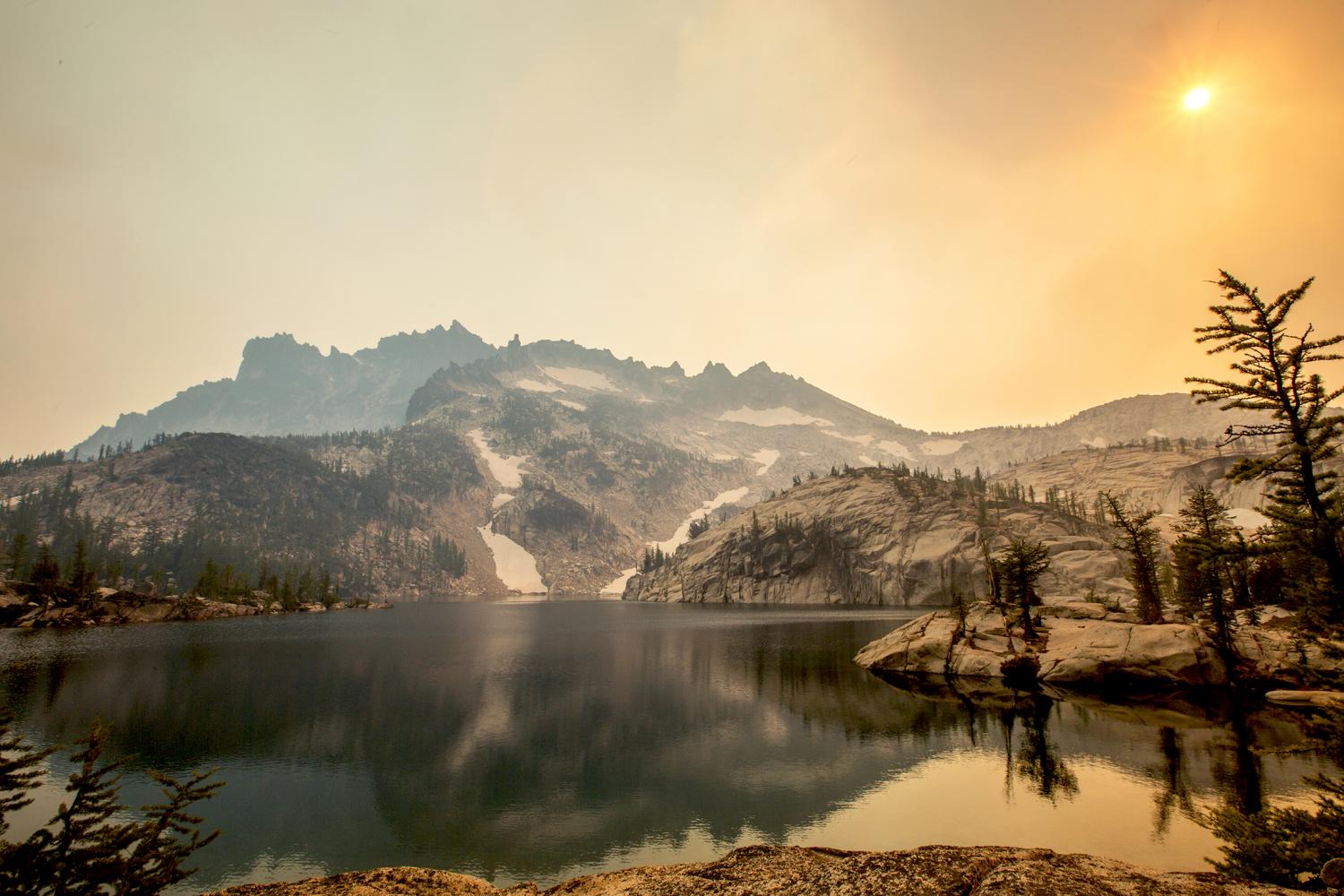Extreme fire years cause poor air quality
Washington’s Enchantments this Labor Day weekend as wildfires burned nearby.
September 8, 2017
Since 2015, Washington has experienced a series of extreme fire years, and as a result, most of the region has been covered with unhealthy wildfire smoke.
Yunha Lee, an assistant research professor of atmospheric research at WSU, said the increase in temperatures throughout the nation are causing a majority of the wildfires in Washington.
Lee notes that the increase in particulate matter within the air, as a result of the fires, have been caused smoke pollution and poor air quality.
Ranil Dhammapala, an atmospheric scientist at the Washington Department of Ecology, said that the wildfire smoke that has surrounded the air of Pullman should reduce by Friday, and possibly disappear by Saturday.
Dhammapala said there will be relief from hazardous air, but the smoke may continue to negatively affect those with respiratory issues.
Dhammapala estimates that if wildfires are expected to burn in the Cascades then a set of high winds may bring back smoky conditions.
The University of Idaho has also done extensive research on the issue regarding wildfire funding in Washington, through their Policy Analysis Group (PAG), a collection of researchers within the College of Natural Resources that analyze and provide examples of objective, scientific data.
Dennis Becker, an associate professor and director of PAG, said each state has many ways to fund their costs for the prevention of wildfires; however, the most important factor requires understanding of these issues.
In order to fund the aftermath of these fires, the state has used the General Fund money acquired through business and property taxation, to pay for wildfires accountability costs, which amounted to approximately $54.5 million in 2015.
According to the Washington State Department of Health, it is important for students to be cautious of the wildfire smoke.
Symptoms, such as coughing, burning eyes, and shortness of breath when walking around smoke, are detrimental. As a safety precaution, the department suggests wearing protective gear, such as masks, or simply staying indoors in order to prevent further damage.

















